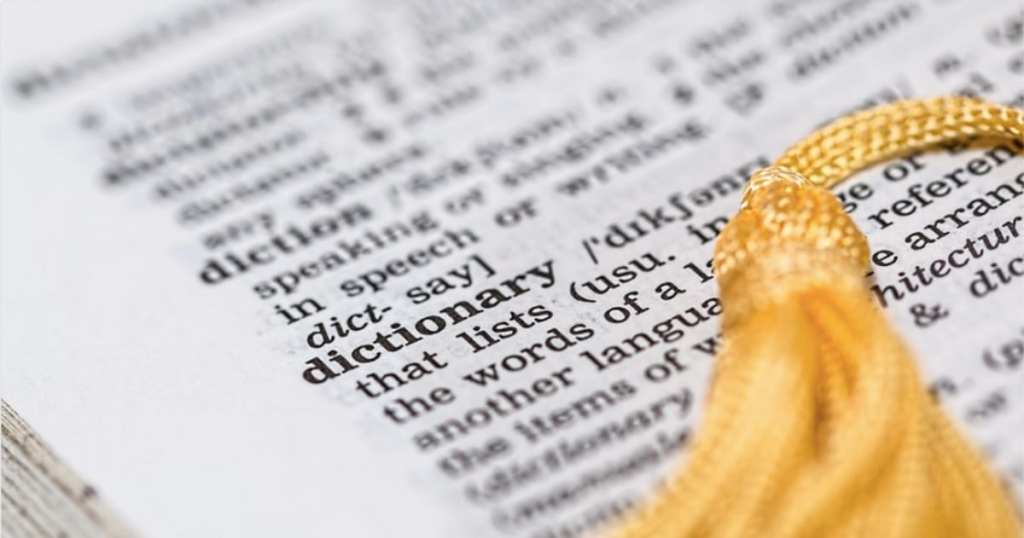Trending Now
I like to think of myself as a word person. I take pride in my vocabulary, and try – especially in my writing – to find the perfect word in every situation.
That said, even people like me, who try to learn when they can, sometimes are wrong about what words actually mean. We might have been using them wrong for a very long time!
Here are 17 commonly misused words – check them out; you might learn something!
17. “Disinterested” doesn’t mean “uninterested.”
https://www.instagram.com/p/BXLTBjLhS02/
Uninterested means “not interested,” and can be synonymous with words like “bored” or “indifferent.” Disinterested means “not having an interest” in something, much like “impartial” or “unbiased.”
16. “Flaunt” doesn’t mean “flout.”
If you’re flaunting something, you’re showing off, but you flout the rules – as in, purposefully ignore them.
15. “Hone” doesn’t mean “to close in.”
https://www.instagram.com/p/B6oNQDjokxy/
Hone means to “sharpen,” so while you can hone your wits or senses, you can’t hone in on it – you can, however, home in on something, like a homing pigeon.
14. “Nonplussed” doesn’t mean “not bothered.”
Though many people believe nonplussed means “unperturbed,” it actually means “perplexed.”
13. “Oblivious” doesn’t mean “unaware.”
https://www.instagram.com/p/B8MwRndARB2/
Well, it might colloquially mean that now, but it originally meant “forgetful” when it first appeared in the 15th century.
12. “Barter” doesn’t mean “haggle.”
If you haggle, you’re negotiating a price, while bartering means exchanging one thing for another.
11. “Electrocute” doesn’t mean “to get an electric shock.”
https://www.instagram.com/p/BzghBY6BzPe/
It means to be put to death or injured by an electric current, not merely to receive a shock.
10. “Fortuitous” doesn’t mean “fortunate.”
They might look and even sound sort of the same, but when something fortuitous happens, it’s by chance or luck, but if something happens by good luck, then it is fortunate.
9. “Loath” doesn’t mean “hate.”
https://www.instagram.com/p/BmOKNjgHpC4/
If you’re loath to do something, you simply don’t want to do it – not necessarily because you loathe it (hate it), but maybe you’re just feeling lazy or unwell at the time.
8. “Peruse” doesn’t mean “browse.”
If you’re perusing a magazine or a rack of clothing, you’re actually “thoroughly” or “completely” looking through something, not casually glancing though it.
7. “Bemused” doesn’t mean “amused.”
https://www.instagram.com/p/B7v1X2Cgleg/
Though you can use bemused colloquially now to mean “wryly amused,” it actually means “dazed,” “bewildered,” or “addled.”
6. “Enormity” doesn’t mean “enormous.”
Technically, enormity should only be used to describe particularly heinous things like crimes, not to denote something random that is simply large in size.
5. “Grizzly” doesn’t mean “grumpy.”
https://www.instagram.com/p/B7X_TkBncjX/
It just means “gray-haired.”
4. “Luxuriant” doesn’t mean “luxurious.”
Something luxurious is characterized by luxury, but something luxuriant is lush, overblown, or overabundant.
3. “Plethora” doesn’t mean “a lot of.”
https://www.instagram.com/p/BpiBjGwHnA_/
Well, it sort of does, but only if what you have a lot of is “too much,” or “an overabundance.”
2. “Dilemma” doesn’t mean “quandary.”
Dilemmas are choices between two alternatives, not simply a problem or quandary.
1. “Factoid” doesn’t mean “fact.”
https://www.instagram.com/p/B8AOuEShoXq/
The word factoid was first used in 1973, but it wasn’t meant to describe a “throwaway piece of trivia.” Instead factoids were “facts which have no existence before appearing in a magazine or newspaper, creations which are not so much lies as a product to manipulate emotion in the Silent Majority.”
They were bits of fake news that people believed because they appeared in print.
Now, I know it’s easy to feel silly when you find out you’ve believed a wrong thing for awhile, but listen – I’ll fistbump a person who learns something new every day.
Were any of these revelations to you? Share which ones in the comments!






